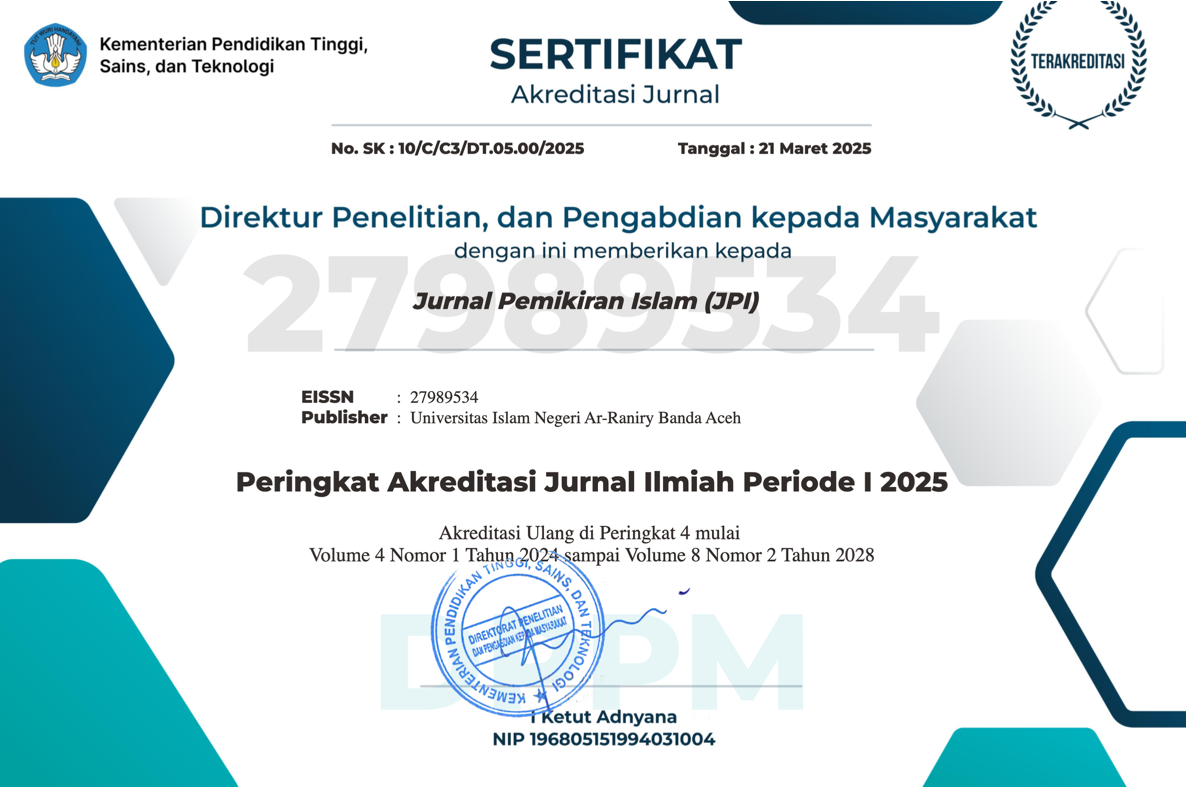Plagiarism Policy
Jurnal Pemikiran Islam (JPI) is committed to upholding the highest standards of publication ethics and academic integrity. To ensure originality, every manuscript submitted to the journal is subject to plagiarism screening.
-
Screening Tools
-
The journal uses Turnitin (or equivalent plagiarism detection software) to check for textual similarity and overlapping content.
-
The similarity index for manuscripts under consideration should not exceed 25%. Manuscripts exceeding this threshold will be returned to authors for revision or rejected outright.
-
-
Author’s Responsibility
-
Authors must ensure that their works are entirely original.
-
If authors use the work and/or words of others, proper citation and quotation are required.
-
Submitting the same manuscript to more than one journal concurrently constitutes unethical publishing behavior and is unacceptable.
-
-
Editor’s Responsibility
-
Editors will evaluate suspected plagiarism on a case-by-case basis, following COPE guidelines.
-
Plagiarism includes, but is not limited to: verbatim copying without citation, significant paraphrasing without acknowledgment, and claiming results from others’ research.
-
-
Handling Violations
-
If plagiarism is detected at the review stage, the manuscript will be returned or rejected.
-
If plagiarism is detected after publication, the editorial board will take appropriate actions, which may include issuing a correction, retraction, or statement of concern.
-
-
Self-Plagiarism
-
Authors should avoid publishing substantially similar content that overlaps with their previously published work.
-
Any re-use of an author’s prior work must be properly cited and should add significant new contributions.
-














